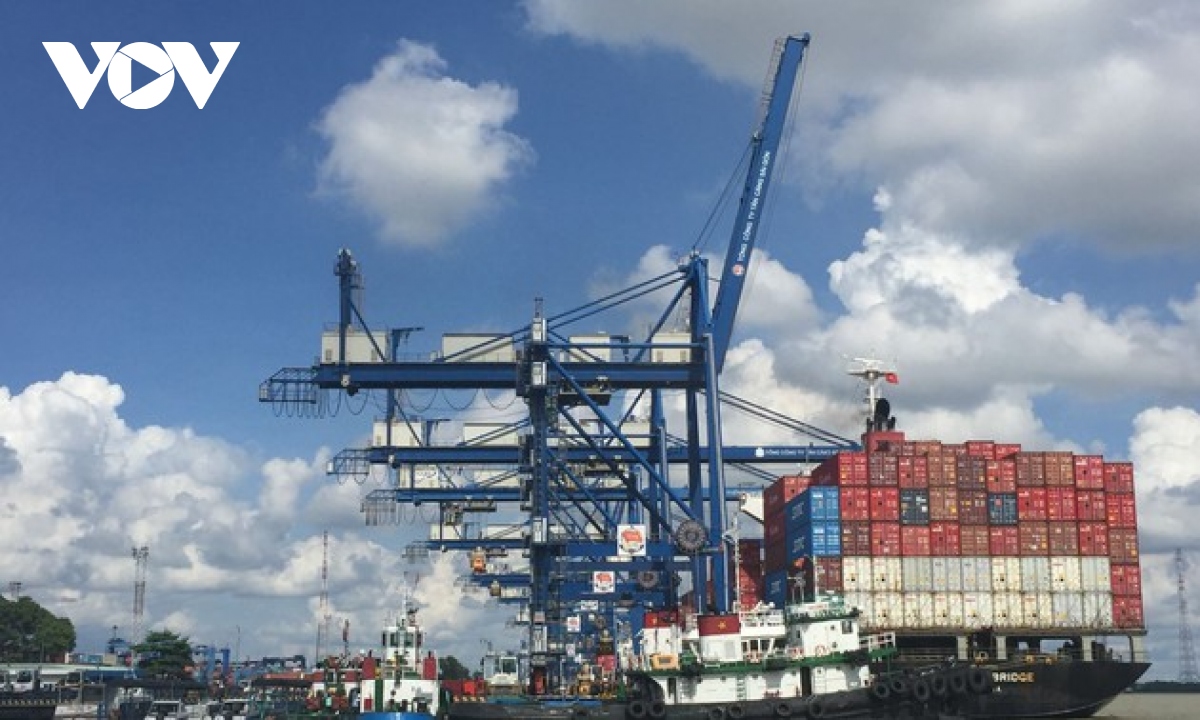Positive prospect of foreign capital inflow into local logistics sector
VOV.VN - Foreign investors have increased their capital in the Vietnamese logistics market to seize upon development opportunities after the COVID-19 pandemic, according to industry experts.
Filippo Bortoletti, senior manager of Business Advisory for Dezan Shira & Associates, a multinational investment consulting company, said that the nation’s logistics sector remains attractive to foreign investors despite barriers regarding legal regulations.
Meanwhile, domestic logistics enterprises are mainly made up of small and micro-scale with traditional warehouses and generally lack infrastructure, technology, and capital.
Customers can therefore truly experience a huge difference in terms of quality and professionalism between logistics firms. Foreign direct investment (FDI) enterprises generate greater revenue within the Vietnamese market because they boast more competitive advantages compared to domestic companies, he analysed.
As many companies have ceased doing business during the pandemic, as well as the nation’s increasingly important role in the global supply chain, the logistics sector will continue to develop at a faster pace, with many opportunities for foreign investors, Bortoletti went on to say.
According to details given by the Ministry of Industry and Trade, there are more than 4,000 logistics firms operating domestically. Statistics released by the Vietnam Logistics Association show that the first nine months of 2021 saw more than 2,500 logistics companies suspend their operations due to operational restrictions and social distancing measures, while more than 570 companies ceased operating altogether.
Furthermore, customer habits are also changing and shifting to e-commerce logistics. According to Bortoletti, the growing number of e-commerce businesses is anticipated to continue over the coming years, thereby increasing the demand for warehousing and delivery services.
Positive outlook
Many foreign investors have been active in pouring capital into the Vietnamese market. Recently, GLP, a global investment manager and business builder in logistics, officially announced the establishment of GLP Vietnam Development Partners I (GLP VDP I) with total investment value reaching US$1.1 billion.
The fund has received commitments from a group of diverse investors from across Asia, Europe, North America, and the Middle East representing pension funds, sovereign wealth funds, and insurance companies.
Craig A. Duffy, managing director of fund management of GLP, said institutional investments in logistics have recorded strong growth within Southeast Asia, with Vietnam being one of the most attractive markets given its population dynamics, growing economy, and middle class which support domestic consumption.
“We see similarities between Vietnam and our businesses in China and India and can leverage our expertise and knowledge from our experiences in those markets to create a sustainable, market-leading business in Vietnam,” said Duffy.
Similarly, WHA Corporation PCL of Thailand has announced plans for a new revenue stream by investing 50 billion baht, equal to US$1.51 billion, over the next five years.
Of this figure, besides investing in digital technology, a part of this investment will be used to expand in the nation.
Specifically, WHA plans to expand 352 hectares of an industrial park in the northern province of Nghe An in the first quarter of the year. The group therefore expects sales in Thailand and Vietnam to grow by 46% this year.
According to Bortoletti, foreign companies operating in the logistics sector still have a strong competitive advantage, with efficient technology and processes, good-quality services, and strong human and technological resources. Foreign companies are therefore willing to exploit domestic logistics services as a means of quickly penetrating the market and achieving a positive return on their investment, he stated.
In a recent report, the Organization for Economic Co-operation and Development (OECD) advised the nation to liberalise its logistics sector because of barriers for foreign investment is the main cause affecting the development of domestic logistics firms, leading to higher logistics costs.
The OECD has called on the country to gradually relax regulations on foreign ownership limit ratio (FOL) towards allowing ownership of up to 100% foreign shares in both the medium and long term.
Bortoletti pointed out that the significant opportunity ahead for foreign companies to penetrate the Vietnamese logistics market comes from the structure of the industry.
The majority of small companies featuring high logistics costs can penetrate the market quickly by taking advantage of superior technologies and efficient processes.
However, foreign investors will also face other challenges. Specifically, an FDI enterprise cannot hold more than 51% of shares in a local logistics business, whilst there are also some requirements for infrastructure used such as warehousing and vehicles, Bortoletti shared.

